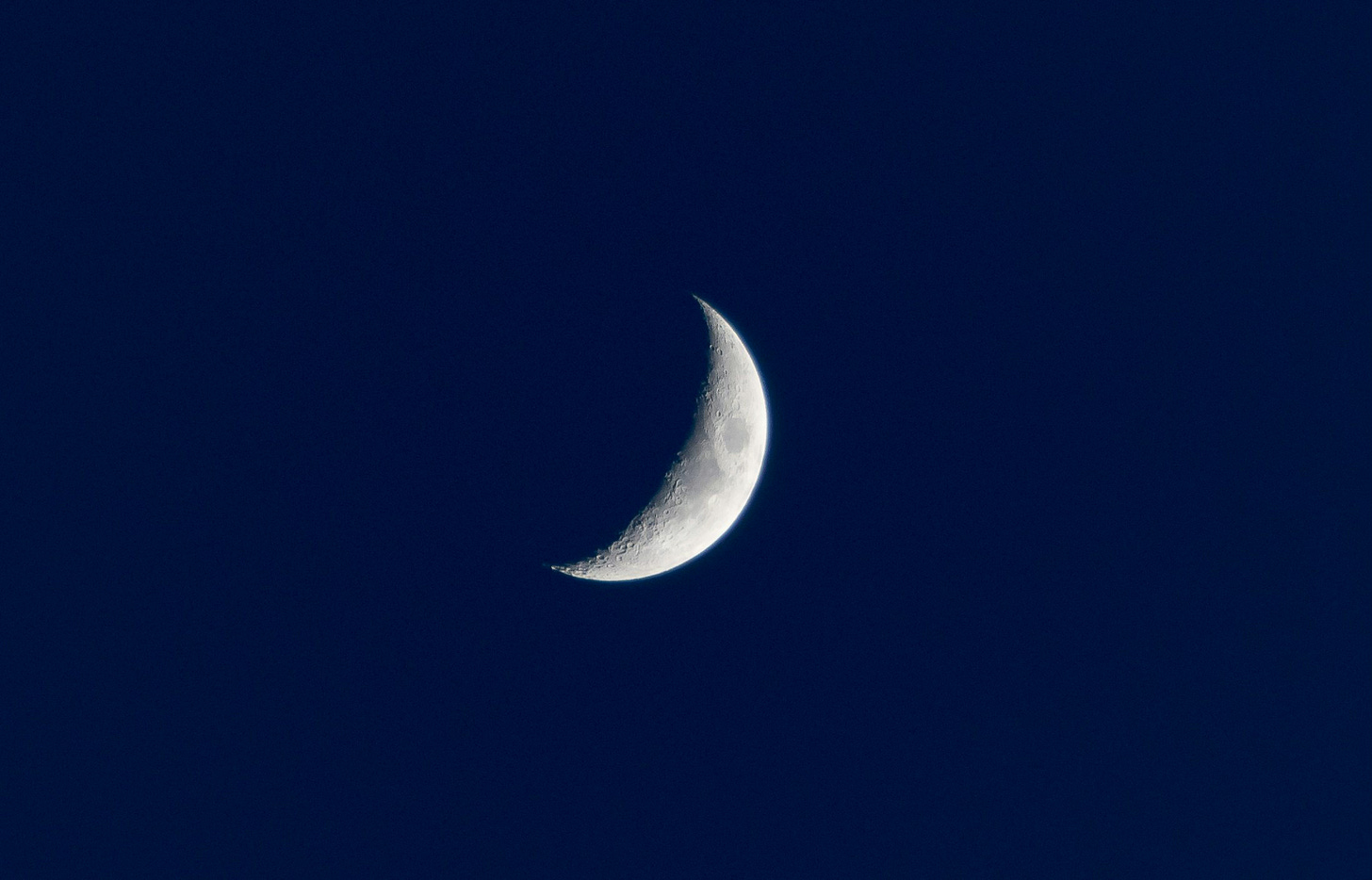Improving your sleep is one of the most powerful ways to boost your daily energy levels. You've heard "get more sleep" countless times, but here's the reality most people miss: poor sleep doesn't just make you tired - it fundamentally rewires your brain for suboptimal performance, accelerates aging at the cellular level, and keeps your nervous system trapped in a constant state of stress.
After years of optimizing my sleep and hearing from high achievers who prioritize rest as a performance tool, I can tell you this: upgrading your sleep quality is absolutely achievable. When you understand what poor sleep actually does to your brain, body and more importantly, what you can do about it, you'll have the tools to upgrade your sleep—and your entire life—starting tonight.
Why Your Body Craves Deep Rest
During sleep, your brain's glymphatic system – essentially your sewage system – clears metabolic waste, your immune system strengthens, your muscles repair, and your hormones rebalance. When you consistently get quality sleep, you wake up with stable energy, clearer thinking, better mood regulation, and stronger physical resilience.
Think about it this way – every single day, you're exposed to thousands of compromises. Stress from that difficult conversation. Constant electromagnetic radiation from your phone. Processed food you ate because you were rushing. Pollution you breath walking down the street. Even the most conscious among us are constantly interfacing with a world that pulls us out of our natural harmony.
Your sleep isn't just "downtime" – it's active, sacred restoration time. While you're sleeping, your brain is literally washing itself clean. Sleep expert Matthew Walker's years of research1 shows us that glymphatic system is absolutely essential. Without it, those toxic proteins start accumulating, and over time, that's linked to everything from memory problems to neurodegenerative diseases.
The Aging Acceleration Effect
Research shows that people who consistently sleep less than 6 hours per night have shorter telomeres2 . Poor sleep quality is associated with accelerated telomere shortening, with some research showing that women sleeping ≤6 hours had telomere attrition equivalent to 9 years of aging. You're not just losing sleep—you're losing years of your life.
More evidence suggests when you prioritize quality sleep, you're not just recovering for tomorrow – you're actually protecting and preserving your brain for years to come. Longtitudinal studies3 tracking people over 15 years found that those with multiple sleep problems had brain scans showing 1.9 to 3.5 years of additional aging compared to good sleepers. Even a single night of poor sleep triggers neuroinflammation and increases amyloid-beta proteins – same proteins linked to Alzheimer's disease4.
But here's what's really important to understand – the amount of sleep you need is directly related to how much your body has to process and neutralize. If you drink alcohol or smoke, if you're eating heavy starches, meats, or processed oils, if you're overeating or carrying a particularly high stress load, your body will need significantly more sleep to handle all that processing. The more acidic and compromising your daily inputs, the more sleep your system requires to neutralize and restore balance.
This is why even advanced cleansers benefit from those long, luxurious 7-8 hour stretches at night. Your body isn't just maintaining – it's actively working to process decades of accumulated compromises, and when you're beyond that personal backlog, it's often working on ancestral patterns held deep in your cellular memory.
The Deeper Truth About Sleep Cycles
Your sleep happens in 90-minute cycles. Like waves washing over you throughout the night, each wave has its own purpose, its own healing gift.
In the first part of the night, you get those deep, slow waves that are all about physical restoration. Your growth hormone (HGH) peaks during this time – literally rebuilding your tissues, strengthening your immune system, consolidating the day's experiences into wisdom. This is when your body says "okay, now I can finally repair what got damaged today."
Later in the night, as morning approaches, you get more of that dreamy REM sleep. This is where your brain processes emotions, gets creative, and files away memories. Ever notice how you sometimes wake up with the perfect solution to yesterday's problem? That's your REM sleep working its magic.
The thing is, you need both. You need the full symphony, not just a few notes here and there.
Your Inner Rhythm Knows What It Needs
Andrew Huberman's work has opened our eyes to something ancient cultures always knew – we're deeply connected to the rhythms of light and darkness. Your body has this incredible internal clock that's been fine-tuned over millennia to sync with the sun.
When light hits your eyes in the morning – real sunlight, not the harsh artificial stuff – it sends a signal deep into your brain that says "it's time to be awake and alert." This starts a beautiful cascade of hormones that will make you feel energized during the day and naturally tired when evening comes.
But here's where modern life gets tricky. We're blasting our eyes with bright screens right up until bedtime, essentially telling our bodies it's still noon when it's actually 10 PM. No wonder so many people struggle to fall asleep! We've confused our ancient wisdom with modern chaos.
Your body temperature naturally drops as bedtime approaches – that's actually one of your strongest sleep signals. This is why a warm bath about an hour before bed can be so magical. It's not just relaxing; you're literally helping your body do what it naturally wants to do.
Creating Your Sleep Sanctuary
Your bedroom should feel like a sanctuary, not just a place where you collapse at the end of the day.
Temperature matters more than most people realize. Your body wants to be cool when it's trying to sleep – somewhere between 65-68 degrees is ideal. If you're too warm, your body has to work to cool itself down, and that can fragment your sleep without you even knowing it.
Darkness is crucial too. Even tiny amounts of light can suppress your melatonin production. I'm talking about the glow from your alarm clock, the streetlight creeping through your curtains. Your ancient body doesn't distinguish between LED and the sun – light is light.
Sleep as Your Ultimate Performance Tool
Here's something every athlete eventually learns – sleep isn't separate from performance, it IS performance. When you're sleeping, your body is literally rebuilding itself stronger than it was before. We're talking about actual muscle protein synthesis, bone remodeling, and cellular regeneration happening at peak efficiency. Your body is essentially running its most powerful recovery program while you're unconscious.
Sleep also regulates the hormones that control your appetite and cravings. When you're sleep-deprived, your body produces more ghrelin (which makes you hungry) and less leptin (which makes you feel satisfied). This is why you find yourself reaching for sugary, starchy foods when you're tired – your body is desperately trying to get energy from somewhere.
I've seen this pattern over and over with people on cleansing journeys. The ones who prioritize sleep consistently see faster healing, better energy, clearer skin, and more stable moods. The ones who try to push through on minimal sleep often struggle with cravings, emotional ups and downs, and slower progress overall.
Practical Magic for Better Sleep
Let me share some simple practices that can transform your sleep, and therefore your life:
Morning Light Ritual: Within the first hour of waking, get yourself outside for at least 10-15 minutes. Even if it's cloudy, even if it's winter, even if you don't feel like it. This one practice alone can reset your entire circadian rhythm. If you absolutely can't get outside, at least open your curtains and windows and let natural light flood in.
The Sacred Evening Transition: About 2-3 hours before you want to be asleep, start dimming all the lights in your house. Light some candles. This signals to your body that day is transitioning to night. If you must use screens, get yourself some good blue light blocking glasses to filter out the wavelengths that suppress melatonin.
Temperature Play: Try taking a warm bath or shower about 90 minutes before bed. As your body cools down afterward, it mimics and amplifies your natural temperature drop, making sleep come more easily.
The Art of Saying No: This might be the most important one. Your nervous system needs time to shift from the sympathetic (fight-or-flight) to parasympathetic (rest-and-digest) mode. If you're answering texts/emails or scrolling right up until bedtime, you're asking your body to go from 60 to 0 instantly. It doesn't work that way.
Bedroom Boundaries: Your bedroom is for rest, sleep and intimacy only. Not for work, not for eating, not for Netflix. When your brain sees your bed, it should think "ah, time to rest," not "oh, here's where I do everything."
The Magic Hours: 10 PM - 2 AM The deepest, most restorative sleep happens during the first half of the night, typically between 10 PM and 2 AM. This is when your growth hormone peaks, your immune system does its heaviest lifting, and your brain's glymphatic system runs its most intensive cleaning cycle. Miss this window, and you're missing the most powerful healing hours your body has to offer. Your body has already started shifting toward morning cortisol production, preparing for daytime activities.
Honor Your Natural Wake Time: Here's something most people don't realize – jolting yourself awake with an alarm clock in the middle of a sleep cycle is like yanking a plant out of the soil while it's still growing. Your body has its own wisdom about when it's ready to emerge from sleep, and when you force it awake before it's naturally complete, you're interrupting crucial restoration processes. This is why you can sleep for 8 hours but still feel groggy and depleted if you wake up at the wrong time in your cycle. Whenever possible, try going to bed early enough that you wake up naturally, or use a gentle sunrise alarm that gradually increases light to work with your body's rhythms rather than against them.
Movement That Actually Serves Your Sleep: If you're hitting the gym or a 5 mile run within a couple hours of bedtime, you're basically telling your nervous system "nope, we're still in go-mode" – heart rate through the roof, body temperature spiking, stress hormones having a whole party in your system. Restorative yoga, soft stretching, or even just a slow walk around the block can actually be your sleep's best friend. These practices are like hitting the reset button, releasing all that physical tension while giving your mind permission to finally chill out. It's basically the perfect transition from "doing all the things" to "time to let my body heal."
Troubleshooting Common Issues
"I can fall asleep but wake up at 3 AM every night":
Check your blood sugar stability with evening nutrition
Assess stress levels and consider adaptogenic herbs
Evaluate alcohol consumption and timing
Consider cortisol testing if pattern persists
"My mind races when I try to sleep":
Implement a "brain dump" 2 hours before bed - write it down
Try breathing techniques above consistently for 2 weeks
Consider meditation apps specifically for sleep
L-theanine and magnesium combo often helps significantly
"I wake up tired even after 8 hours":
Evaluate sleep environment (temperature, darkness, noise)
Consider sleep apnea screening if snoring is present
Check for underlying health issues (thyroid, iron, B12)
Examine sleep timing - you might be waking during deep sleep phases
"I travel frequently and can't maintain a routine":
Use melatonin strategically for time zone shifts
Bring your own pillow and sleep mask
Maintain consistent wake times even with varying bedtimes
Use light therapy apps to help reset circadian rhythm
The Deeper Healing
Here's something the sleep experts don't always talk about – sometimes you need more sleep because you're processing more than just physical recovery. When you're going through periods of emotional healing, spiritual growth, or major life transitions, your sleep needs might increase dramatically.
Don't fight this. Your body's intelligence is far greater than your mind's agenda.
If you're naturally wanting to sleep 9 or 10 hours, there's probably a good reason. Maybe you're processing old trauma. Maybe you're integrating new insights (we ARE what we CONSUME). Maybe your body is finally safe enough to do some deep healing it's been putting off for years.
I've noticed that people who are newer to cleansing often need significantly more sleep. This makes perfect sense – when you start giving your body real nutrition and reducing toxic inputs, it finally has the resources and space to do some serious housekeeping. Years of accumulated stress, toxins, and compromise don't get processed overnight.
Supplements That Actually Help
I'm generally more interested in addressing root causes than masking symptoms with supplements, but there are a few things that can genuinely support your body's natural sleep processes:
Magnesium is involved in over 300 enzymatic reactions in your body, and most people are deficient. It helps calm your nervous system and relax your muscles. Magnesium glycinate is usually the most bioavailable and least likely to cause digestive upset.
Natural melatonin in small doses (0.5-3mg) taken about an hour before bed can help reset your circadian rhythm, especially if you've been dealing with insomnia or jet lag. But please don't use it as a crutch – address the underlying issues too.
Some people find passionflower tea, chamomile, or valerian root helpful for evening wind-down. These are gentle, traditional herbs that have been used for centuries to promote relaxation. Valerian has a particularly potent sedative effect, so start with small doses to see how your body responds.
Trust Your Body's Wisdom
The most important thing I want you to understand is this: your body knows what it needs. In our culture, we've been taught to override our natural signals, to push through fatigue, to wear exhaustion like a badge of honor.
But what if instead of fighting your tiredness, you honored it? What if instead of trying to minimize your sleep, you saw it as an investment in your vitality? What if you trusted that your body's desire for rest is actually intelligence, not weakness?
When you consistently give your body the deep, restorative sleep it craves, everything else starts to fall into place. Your mood stabilizes. Your energy becomes more consistent. Your skin glows. Your immune system strengthens. Your intuition sharpens. You become more resilient to stress and more available for joy.
Sleep isn't something you have to earn or optimize your way into. It's your birthright. It's your body's built-in healing system. All you have to do is create the conditions for it to work and then get out of the way.
https://www.researchgate.net/profile/Matthew-Walker-23
https://www.sciencedirect.com/science/article/abs/pii/S2352721819302657
Cavaillès C, Dintica C, Habes M, Leng Y, Carnethon MR, Yaffe K. Association of self-reported sleep characteristics with neuroimaging markers of brain aging years later in middle-aged adults. Neurology. 2024;103(10):e209988.
Ooms S, Overeem S, Besse K, Rikkert MO, Verbeek M, Claassen JAAR. Effect of 1 night of total sleep deprivation on cerebrospinal fluid β-amyloid 42 in healthy middle-aged men: a randomized clinical trial. JAMA Neurol. 2014;71(8):971-977.







